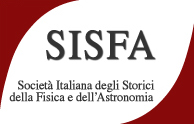Speaker
Description
Based on previous works such part of doctoral studies of one of us (VC) at the Lille University, France, a mixed with open-ended and closed-ended inquiring concerning Force Concept Inventory was arranged at Liceo scientifico "F. Sbordone" in Naples. Therefore, an analysis of understanding of physics topics starting from the students' difficulties and from their common sense knowledge was experimentally implemented, as well. Then a feedback on the effectiveness of the historical educational path about Galileo and motion (Pisano and Cioci 2020a, 2020b) – and more generally of the Nature of Science Teaching in history of physics – was produced. Particularly, the experimentations was conducted for three years with more than one hundred students participating. The results were also compared with a control group of about seventy pupils that followed a traditional path. The post–analysis of the misconceptions of students learning will be set into different learning–historically categories giving a related score (non––parametric statistical analysis methods were chosen).
Selected References
Hestenes D., Wells M., Swackhamer G. (1992). "Force Concept Inventory". The Physics Teacher, 30, pp. 141-158.
Pisano R., Cioci V. (2020a). Galileo’s Free fall into History Physics & Nature of Science Teaching. In: Esposito S., Fregonese L., Mantovani R. (eds.) Proceedings of 38th SISFA Congress. Pavia: Pavia University Press, pp. 271-278.
Pisano R., Cioci V. (2020b). Nature of Science Experiments: Exploring Galilean Physics of Motion. In: La Rana A, Rossi P. (eds.) Proceedings of 39th SISFA Congress. Pisa: Pisa University Press, in press.
Wilcoxon F. (1945). "Individual comparisons by ranking methods". Biometric Bulletin, 1 (6), pp 80–83.

